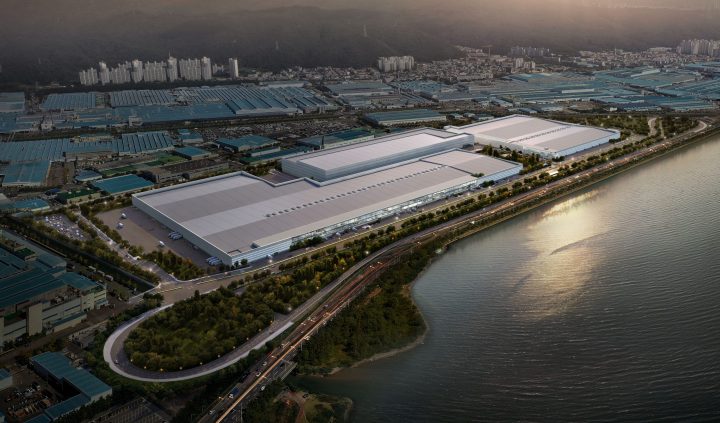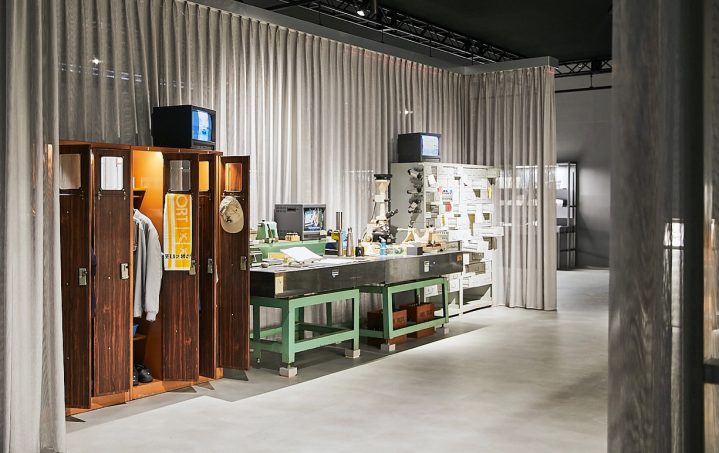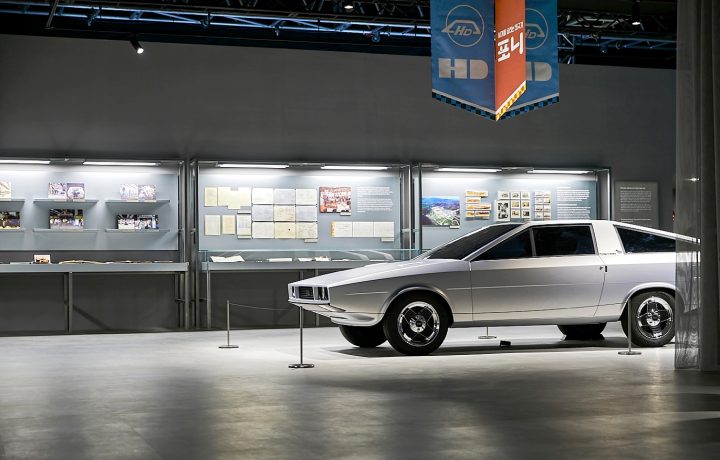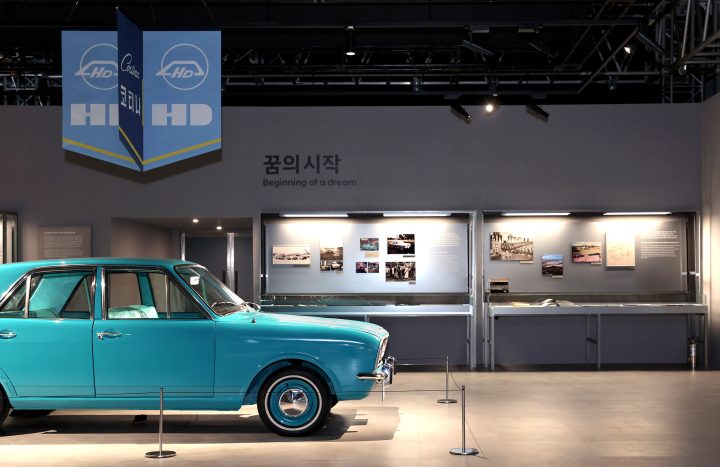
Hyundai Motor Company commemorated a significant milestone with a groundbreaking ceremony for its new electric vehicle (EV) plant located in Ulsan, a strategic hub within Korea’s automotive industry. This ceremony marked a pivotal moment for Hyundai in terms of technological advancements and aligning with the visionary dream set forth by the company’s Founding Chairman over 50 years ago.

Photo: Hyundai Motor
The newly established EV-dedicated plant, poised to be a cornerstone of future growth in the era of electrification, signifies Hyundai’s commitment to innovation while prioritizing human-centric values. The plant is designed to be a center for mobility production in the electric age, transforming the Ulsan Plant complex into a nucleus for future mobility endeavors.
Euisun Chung, Executive Chair of Hyundai Motor Group, expressed his honor in sharing the dream of a 100-year company at the groundbreaking ceremony. Drawing parallels to the transformation of Ulsan into an automotive city through past dreams, he envisaged Ulsan evolving into an innovative mobility city, spearheading electrification, starting with this dedicated EV plant.
Ulsan Metropolitan City Mayor Doo-gyeom Kim acknowledged Hyundai Motor Company’s pivotal role in Ulsan’s growth and pledged continued efforts to shape a new future in line with global automotive industry changes. First Vice Minister of Trade, Industry, and Energy, Youngjin Jang, emphasized the government’s commitment to supporting Hyundai Motor’s role as an electric vehicle powerhouse through decisive investments and business-friendly policies.
The vision behind the new EV plant echoes the founding principles of Hyundai Motor’s Chairman Ju-yung Chung, who foresaw the automobile industry as a cornerstone of Korea’s economic growth. The plant’s inauguration pays homage to his foresight, employing AI technology to reproduce his historic quote and symbolizing Hyundai’s commitment to becoming a global automotive powerhouse.
The journey began in 1968 when Hyundai Motor’s Ulsan Plant started as an assembly plant. Over the years, it transformed into the largest single plant globally, playing a pivotal role in introducing Korean cars to the international market. The mass production of the Pony in 1975 marked a turning point, showcasing the company’s determination to develop South Korea’s first independently designed automobile despite domestic challenges and skepticism.

Photo: Hyundai Motor
Honorary Chairman Mong-Koo Chung’s emphasis on quality management propelled Hyundai Motor into a global brand, contributing to the country’s technological independence and the localization of automotive parts production. Today, Ulsan remains the birthplace of the Korean automotive industry.
In alignment with its humanistic roots, Hyundai Motor is set to advance its vision for mobility with the EV-dedicated facility. This plant, the first in Korea in 29 years, aims to lead the electrification era, producing vehicles that exceed customer expectations and strengthening the domestic industry base. Hyundai’s values extend beyond customers to employees, fostering an optimal working environment and a people-centered plant for the next 50 years.
The new EV-dedicated plant, sprawling across a 548,000 m2 site, is poised to produce 200,000 EVs annually, with an investment of approximately KRW 2 trillion. Construction is set to commence in the fourth quarter of the current year, targeting completion by 2025 and vehicle mass production starting in Q1 2026. The first model to roll out from this plant will be an electric SUV from Genesis, Hyundai Motor Group’s luxury brand.
The choice of Ulsan as the plant’s location holds historical significance, as it was once Hyundai Motor’s proving ground for developing vehicles that could withstand diverse terrains and climates globally. This site witnessed the birth of global models like Sonata, Accent, and Elantra and early research on EVs and autonomous driving.
To future-proof the facility, Hyundai Motor plans to implement an innovative manufacturing platform developed by the Hyundai Motor Group Innovation Center in Singapore. This platform prioritizes employee safety, convenience, and efficiency through demand-driven, AI-based intelligent control systems and eco-friendly, low-carbon construction methods.

Photo: Hyundai Motor
The new EV-dedicated plant will be a hub for technological excellence and a nature-friendly space, deviating from the conventional image of industrial plants. Natural light will permeate the factory, promoting a warm and open atmosphere. A central park within the facility will provide a rest area and serve as a connecting hub between buildings. Solar power panels and upcycled concrete panels will contribute to the plant’s sustainability, minimizing carbon emissions.
The groundbreaking ceremony was a reflection of Hyundai Motor’s past, present, and future. It featured an AI-generated voiceover by Founding Chairman Ju-yung Chung, highlighting the company’s humanistic spirit and commitment to people-centered innovation. The event concluded with a panel discussion outlining the key features and vision for the new EV-dedicated plant, emphasizing its role as a ‘space for people.’
In celebration of this momentous occasion, Hyundai Motor is hosting a heritage exhibition tracing the Ulsan Plant’s journey over the past 50 years. Divided into three themes, the exhibition explores the beginning of the dream, the realization of the dream, and stories about the evolution of Hyundai Motor’s Ulsan Plant and its employees. This exhibition, open to the public from January next year, serves as a testament to Hyundai’s commitment to progress for humanity and its expedition into the electrifying era of electric vehicles. Hyundai Motor aims to advance mobility solutions for everyone through the new EV-dedicated plant in Ulsan, leading the paradigm of future automobile production.


